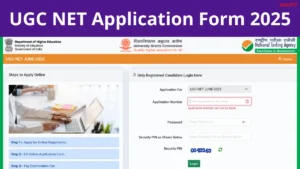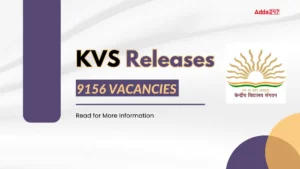Table of Contents
The Bihar School Examination Board (BSEB) has officially released the notification for the Bihar DElEd 2025 on 10th January 2025, which can be found on their official website. The Bihar DElEd entrance exam is an important step for candidates aspiring to pursue a 2-year Diploma in Elementary Education (D.El.Ed). The exam is scheduled to take place on 27th February 2025, and candidates will be preparing in full swing to perform well and secure a position on the cut-off list. All candidates need to be fully aware of the qualifying marks for Bihar DElEd 2025, as these marks are the minimum requirement needed to proceed in the selection process.
In this article, we will go over all the important details related to the qualifying marks, explaining their significance and how they influence candidates’ chances of successfully moving forward in the admission process.
What are the Qualifying Marks for Bihar DELED 2025?
For the Bihar DElEd 2025 exam, candidates need to score a minimum percentage to be eligible for further selection. Candidates from the Unreserved category need to score at least 35%, while those from Reserved categories (like OBC, SC, ST) need 30%. These marks are necessary for candidates to move forward in the selection process and be considered for the next stages of admission.
However, meeting the qualifying marks does not guarantee admission. After the exam, the Bihar School Examination Board will release a cut-off, which is the minimum score required for candidates to be eligible for admission. The admission process will be based on this cut-off, and candidates who meet or exceed the cut-off will be placed on the merit list. The final allotment of colleges will depend on this list, with college choices considered based on the available seats and the candidates’ preferences.
| Qualifying Marks for Bihar DELED 2025 | |
| Category | Minimum Qualifying Marks |
| Unreserved (General) | 35% |
| Reserved Categories (OBC, SC, ST) | 30% |
Bihar DELED Reservation Policy
The Bihar DElEd Reservation Policy ensures that candidates from various backgrounds have equal access to the Diploma in Elementary Education (D.El.Ed) program. The Government of Bihar has set up specific categories for reservation in the admission process, which plays a key role in determining the allocation of seats. This policy guarantees that all eligible candidates, especially from reserved categories, get fair access to the available seats in government and non-government-affiliated teacher education institutions in Bihar.
- Vertical Reservation (Category-based): The reservation applies to candidates from different categories such as Scheduled Castes (SC), Scheduled Tribes (ST), Other Backward Classes (OBC), and Economically Weaker Sections (EWS). The reserved seats for these categories are allocated based on the total number of seats available, ensuring that candidates from these categories have an equal chance of being selected.
- Horizontal Reservation (Subject-based): This type of reservation ensures specific seats for certain subjects such as Urdu and Arts/Commerce and Science streams. These reserved seats ensure that candidates who prefer or are qualified in these subjects have an opportunity to apply for admission, without any discrimination based on their choice of subject or educational background.
Bihar DELED Normalization Process
The Bihar DELED exam follows a normalization process to ensure fairness when exams are held in multiple shifts or dates. Since different shifts may have question papers with varying levels of difficulty, the normalization method is applied to eliminate any advantages or disadvantages. The process is conducted online, and its primary aim is to level the playing field for all candidates, regardless of the shift they appear for. This method adjusts scores to account for any discrepancies between different sets of exam papers, ensuring that candidates from all shifts are evaluated fairly. The final results will be published after applying the normalization process.
Preparation Tips to Qualify for the Bihar DELED Exam
To qualify for the Bihar DELED exam, you need to approach your preparation with dedication and smart strategies. The exam not only tests your knowledge of education and teaching but also your understanding of child psychology, teaching methodologies, and educational policies. Understanding the exam pattern and syllabus will help you plan your studies efficiently. It’s important to be consistent, stay focused, and follow a clear strategy. Here are some tips that can guide you through your preparation:
- Prioritize Key Topics in the Syllabus: Rather than cramming every detail, focus on the key topics that frequently appear in the exam. For example, teaching methodologies, child psychology, and educational policies often hold significant weight. By mastering these areas, you can secure a strong foundation for the exam.
- Use Interactive Learning Tools: Instead of relying solely on textbooks, incorporate online videos, podcasts, and interactive learning tools to understand complex concepts. This multi-modal approach will enhance your learning experience and provide clarity on challenging subjects, especially in teaching methodology and pedagogy.
- Practice Subject-Specific Question Papers: Besides general mock tests, practice subject-specific question papers related to education, child development, and teaching skills. Understanding the types of questions specific to the DELED exam will help you gain expertise in those areas, making your exam preparation more targeted.
- Develop a Strong Understanding of Educational Policies: Bihar DELED also focuses on the understanding of educational policies and reforms. Reading the latest updates on Bihar’s education system, the National Education Policy and government initiatives can help you score better in related sections.
- Engage in Group Discussions: Organize group discussions with fellow aspirants to share knowledge and learn from each other. Peer learning can be incredibly effective in reinforcing your understanding of difficult topics, and discussing practical classroom scenarios can better prepare you for the teaching aspects of the exam.




 UGC NET Application Form 2025 Starts for...
UGC NET Application Form 2025 Starts for...
 Can DELED Qualified Candidates Apply for...
Can DELED Qualified Candidates Apply for...
 KVS Recruitment 2025 Out, Check Kendriya...
KVS Recruitment 2025 Out, Check Kendriya...














